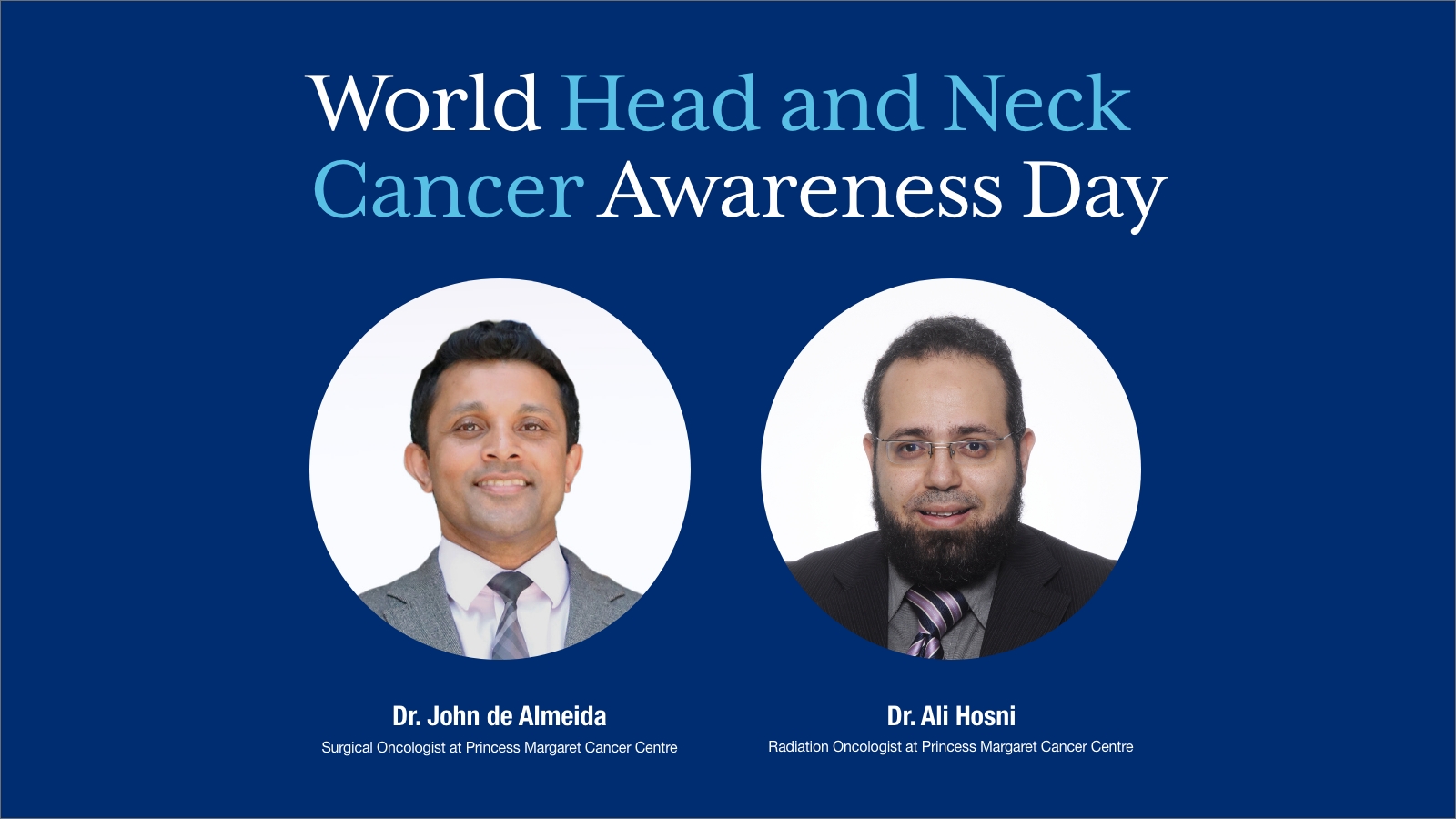
Princess Margaret Cancer Centre is home to the Wharton Centre for Head and Neck Cancer – one of the most comprehensive and integrated head and neck cancer programs of its kind in the world – with the team seeing 1,000 patients every year. While rare among new cancer diagnoses, the incidence of head and neck cancer is on the rise.
Throat cancer is one of the most common types of cancers that Dr. John de Almeida, Surgical Oncologist, and Dr. Ali Hosni, Radiation Oncologist, help manage at the clinic. This form of cancer is mainly treated by surgery, radiotherapy, or a combination of the two types of treatment.
A common physical presentation of throat cancer is lymph node lumps on the neck, also known as “involved lymph nodes.” Nearly 80% of patients with throat cancer have involved lymph nodes. Even though only 15% of patients have them on both sides of the neck, more than 90% of patients unnecessarily receive radiotherapy on both sides of their neck. This over-treatment causes serious side effects, such as painful mouth sores, dryness of the mouth, teeth issues, swallowing problems and sometimes the need for a feeding tube.
Drs. de Almeida and Hosni are combining surgical techniques and refined radiotherapy to reduce these debilitating treatment side effects. With the generous support of The Foundation’s donors, a clinical study called SELECT is underway to evaluate the feasibility of this combined treatment.
By injecting a radioactive particle around the tumour, they can map cancerous lymph node deposits. The radioactive particle diffuses into the affected lymph nodes of the neck, giving the researchers a targeted heat map that shows problematic areas. This heat map allows them to refine and personalize radiotherapy delivery, limiting the overall amount of radiation to the neck.
In the clinical study, half of the throat cancer patients receive whole neck radiotherapy – the standard form of treatment – and the other half receive the experimental, targeted treatment. Drs. de Almeida and Hosni predict there will be fewer side effects with the experimental method. Ultimately, this will lead to better patient outcomes, enhanced quality of life, and reduced healthcare costs.